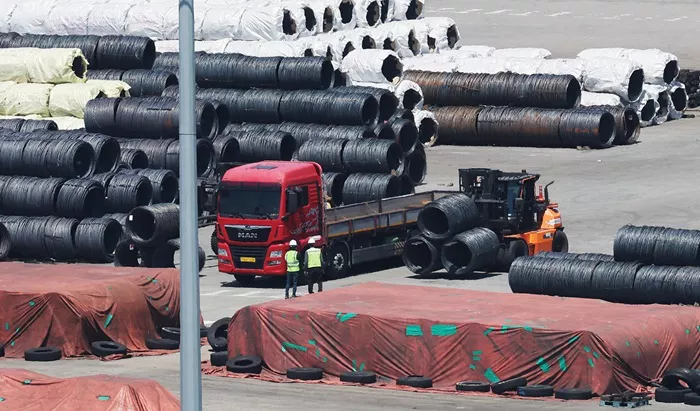The new 50% tariff on steel and aluminum imports into the U.S. is creating complications for Korean tech giants Samsung Electronics and LG Electronics, particularly in their U.S. home appliance manufacturing operations.
U.S. President Donald Trump signed an order last Tuesday, doubling the tariffs on steel and aluminum. This increased tax took effect the next day, raising costs for many products that rely on metal parts. As steel production usually has low profit margins, the tariff hike could lead to higher prices for these goods.
Both Samsung and LG rely heavily on steel and aluminum for their washers, dryers, and other home appliances. The increased tariffs now force these companies to reconsider their supply chains and local production strategies in the U.S.
Since 2018, Samsung has been assembling home appliances in Newberry, South Carolina, with an annual capacity of 1 million washing machines. Following the recent tariff hikes, the company has been exploring the idea of shifting some of its dryer production from Mexico to the U.S. plant.
LG, which has operated a home appliance plant in Clarksville, Tennessee since 2019, is facing similar challenges. The plant currently produces 1.2 million washing machines and 600,000 dryers per year. LG is now considering moving its refrigerator production from Mexico to Clarksville to offset tariff impacts.
In a March shareholder meeting, LG CEO Cho Joo-wan confirmed that the company had already secured additional space at the Clarksville plant for producing refrigerators, ovens, and other appliances. LG also plans to expand its U.S. production further.
However, with the steel tariffs now in place, these companies’ efforts to avoid additional costs could be hindered. The increased cost of raw materials is likely to make their production more expensive.
The U.S. imports a significant amount of steel. In 2024, for instance, the country imported over 28 million tons of steel, or more than 30% of its total steel supply. As a result, higher tariffs are expected to drive up the prices of steel products, raising concerns that this could lead to higher consumer prices for finished goods like home appliances.
An added challenge could be an oversupply of steel. Analysts warn that steel products that cannot enter the U.S. market might be redirected to other regions, possibly lowering steel prices globally. Meritz Securities analyst Jang Jae-hyeok said, “Steel prices in the U.S. may rise initially, but will likely adjust later in the year, especially if steel is sold elsewhere at lower prices.”
Given these challenges, it may be more cost-effective for Samsung and LG to continue manufacturing their products at global plants, despite the tariffs. This will require the companies to carefully weigh the profitability of each option.
“It’s hard to predict when tariffs might change again,” said one industry expert. “But for now, it’s clear that companies must reconsider their production plans and adjust their supply chains accordingly.”

